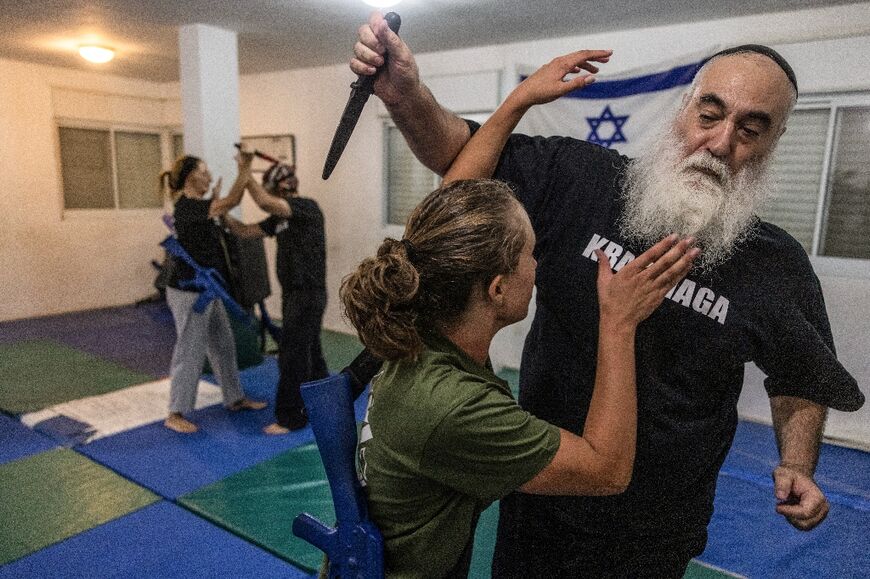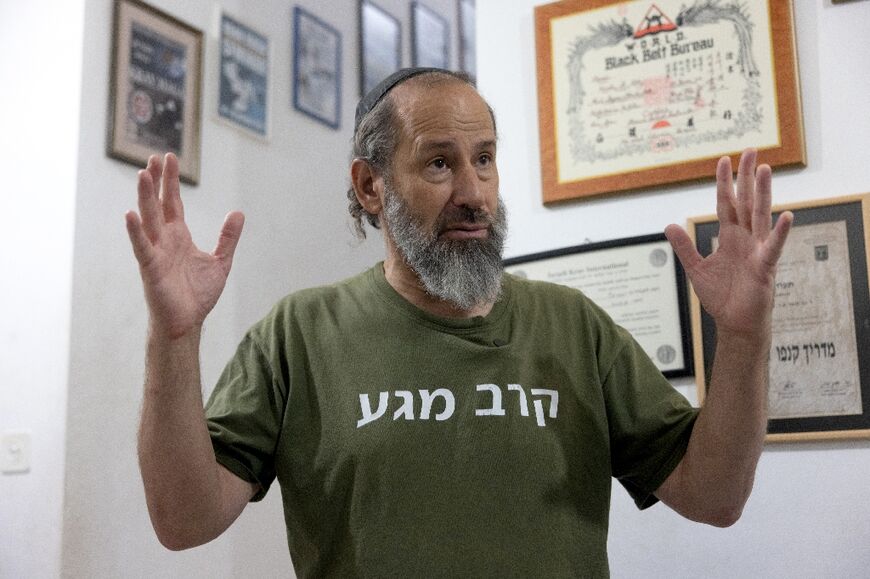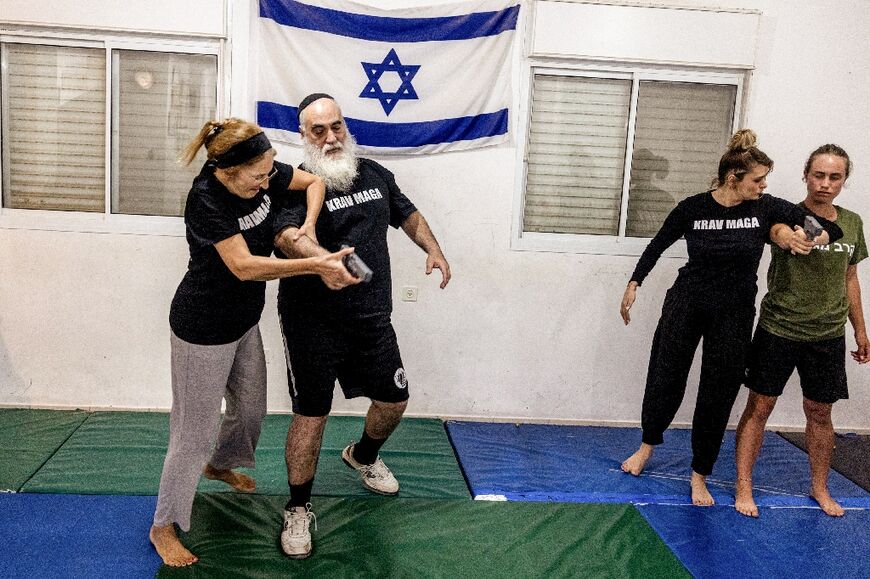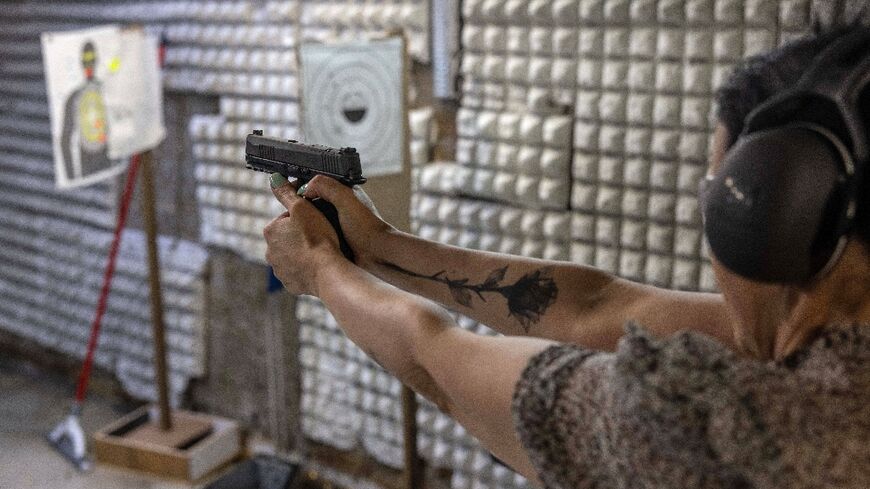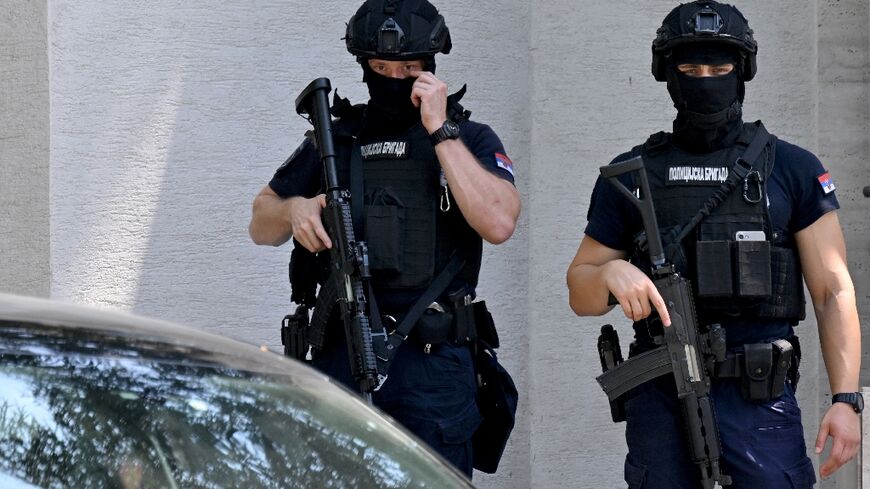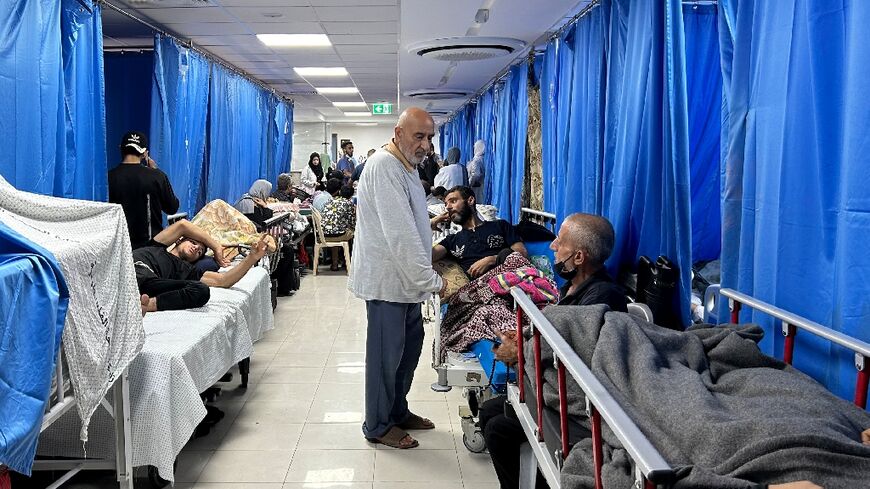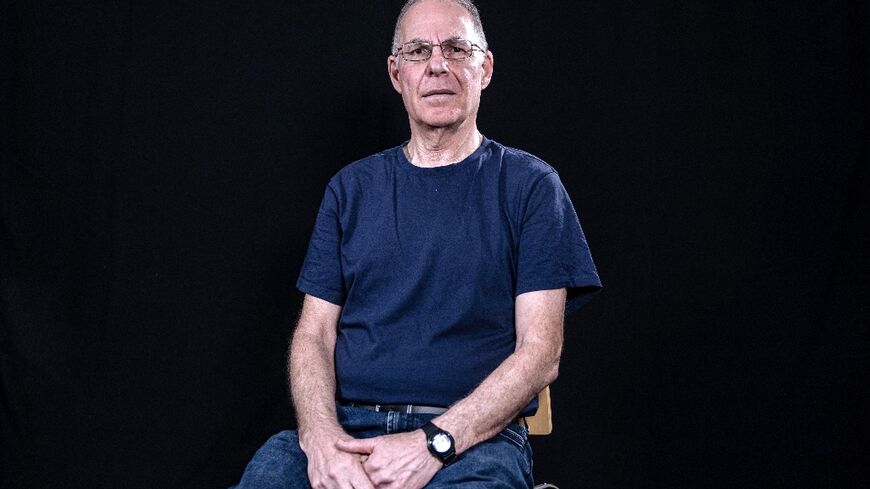Israelis learn Krav Maga fighting art amid Gaza War
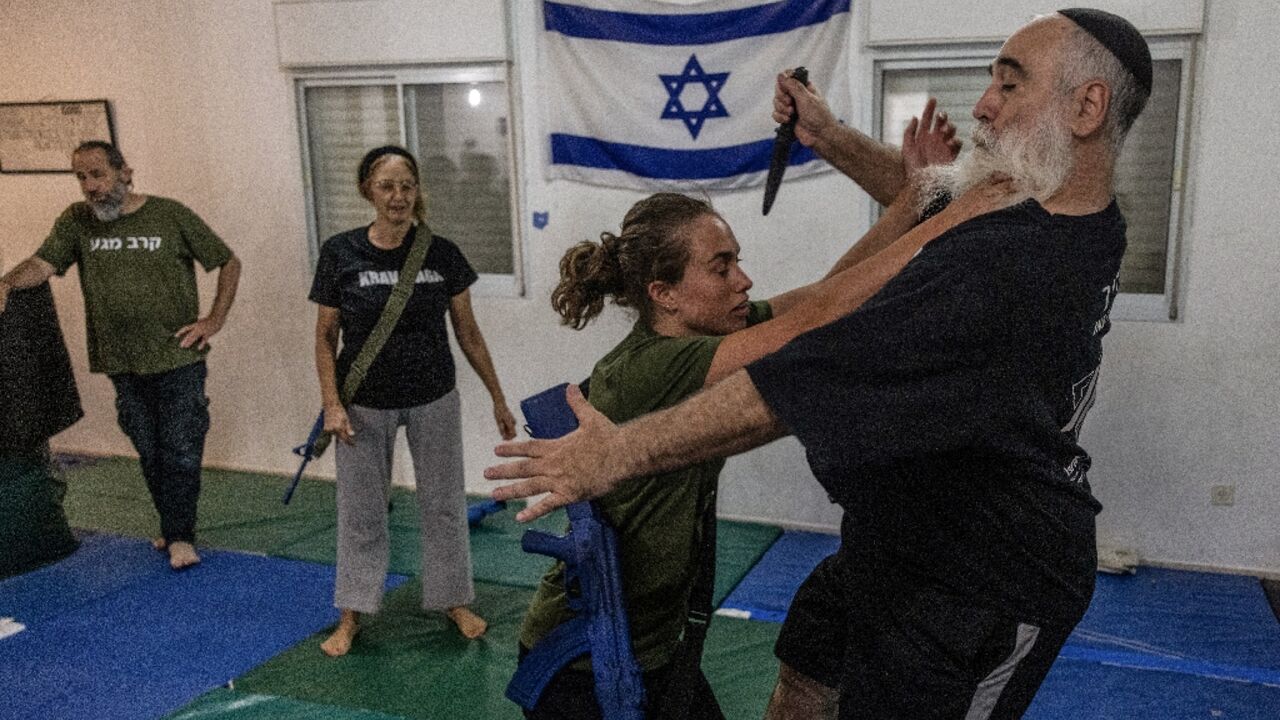
Inside an occupied West Bank settlement, ultra-Orthodox martial arts instructor Moshe Katz oversees students role-playing events from the October 7 Hamas attacks, teaching them how to reverse the guns in a hostage scenario.
"I'll take you hostage first, then you do it to me," he told a student while brandishing a blue rubber Kalashnikov during a simulation for Krav Maga, an Israeli fighting discipline.
Switching to playing a hostage, Katz told the student to grab him by the back of the shirt.
"So now he's grabbing me here and I'm saying I'm not gonna be a victim, no way," Katz said, before seizing the barrel of the fake gun and flipping it on the would-be assailant.
"It's your turn to die today, not mine!" he yelled.
Katz, 63, has converted the basement of his house into a makeshift dojo for teaching Krav Maga.
The self-defence system, which involves an aggressive fighting style and targeted strikes to weak points such as the throat and groin, is an amalgam of various martial arts, boxing and wrestling and has been taught in Israel's military for decades.
With many Israelis gripped by a sense of insecurity since October 7, Katz saw an opportunity to spread his knowledge about the hand-to-hand fighting system.
"I think thousands of years of our history has proven that we need to know how to defend ourselves," said trainee Mordechai Sachs, 56, who had driven for an hour from west Jerusalem.
The Hamas-led attacks resulted in the deaths of 1,195 people, mostly civilians, according to an AFP tally based on Israeli figures. The militants also seized 251 hostages, 116 of whom are still in Gaza, including 42 whom the Israeli military says are dead.
Israel's military offensive has killed at least 38,848 people, also mostly civilians, according to figures from the health ministry in Hamas-run Gaza.
- 'Buying more guns' -
Katz's lessons run through multiple scenarios, including fending off a stabbing attack with kitchen dishes and disarming a gunman holding up a convenience store.
The Israeli settlement he calls home, like all those in the occupied West Bank, is considered illegal under international law.
Since the start of the Gaza war in October, violence in the occupied territory, which was already restive, has surged to levels not seen in decades.
At least 576 Palestinians have been killed there by Israeli troops or settlers since October 7, Palestinian officials say.
In the same time period, 16 Israelis, including soldiers, have been killed in violence with Palestinians, according to Israeli figures.
Katz said some students have stopped driving to evening Krav Maga classes due to security fears.
"They're reluctant to come at night," he said.
Numbers at his bi-weekly classes have fallen by half to fewer than 10 pupils since the war broke out, which Katz attributes to a proliferation of guns.
The government loosened restrictions on private gun ownership in March and sales have since soared.
"I wish I could tell you that people are flocking to learn Krav Maga, but they're not," said Katz. "What I've seen is people are buying more guns."
One trainee, Esther Cohen, turned up for class with a recently purchased gun tucked into her waistband.
"There's some pretty violent stuff going on," said Cohen. "I don't want to be helpless."
But Katz said the extra seconds needed for drawing for a pistol could be "the difference between life and death".
Outside the West Bank, in the Israeli city of Raanana, another Krav Maga gym said its bookings had returned.
"After the war... less training actually took place. Later, we actually saw some kind of desire of people to learn to defend themselves," said instructor Jonathan, 22, who declined to give his last name.
For Katz, the need for Israelis to learn self-defence is straightforward: "We are the first line of defence, and we are the last line of defence."


